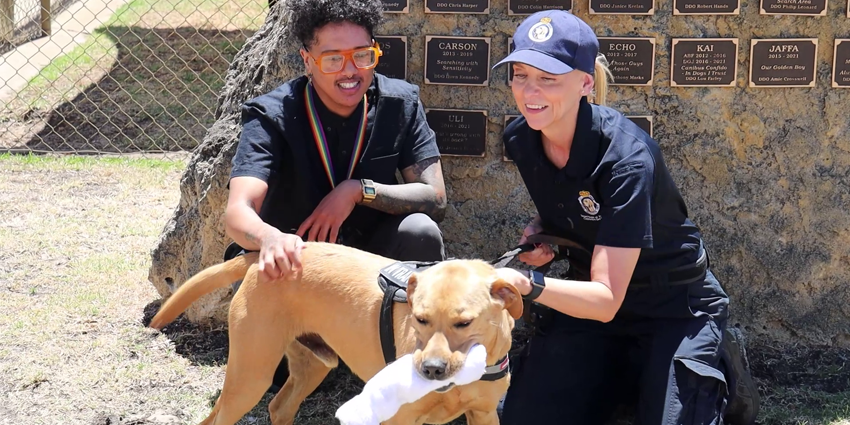
Recommended by a private owner as a “surrender dog”, the labrador retriever’s path to the Unit was different from most detection dogs, which are usually provided by Border Force.
While most surrender dogs don’t end up being deemed suitable for detection duty, it was soon clear Gryff was born for the job.
“Gryff had none of the baseline training we would get from Border Force, so we had to do everything from the beginning,” DDU Deputy Superintendent Jason Rowbottom said. “But he comes from a line of working dog breeds and his progress was fantastic.”
“He certainly is a bit of an anomaly for us but a very successful one.”
Gryff’s former owner Leo, a dog trainer themself, recognised the animal’s potential after moving to Perth from New Zealand where they’d raised him since he was a puppy.
“I realised I wouldn't be able to meet his drive and needs and it was fairer to find an appropriate place for him to work and be happy,” Leo said.
“We are so lucky Leo had the foresight and knowledge to realise Gryff could be a great working dog,” Gryff’s new handler, Drug Detection Officer Asa said.
Asa and her new partner now visit different prisons every day, searching cells, prisoners, and visitors – the serious work all a game to Gryff and the other detection dogs, but vitally important to keeping drugs and other contraband out of the facilities.
“They are here for the fun and part of our job is to make it fun for them,” Asa said. “That makes them better at their job.”
“There’s no machine out there that can search for drugs as quickly and as efficiently as dogs can,” Jason said. “They’re at the sharp end of drug mitigation and are highly successful at it.”
Leo said the decision to give Gryff up was a difficult one, but a reunion with the recently graduated detection dog after his eight weeks of training proved they made the right choice.
“As much as I miss him, I can see how happy he is and how good he is at it,” Leo said. “The bonus is he gets to contribute to society.”


